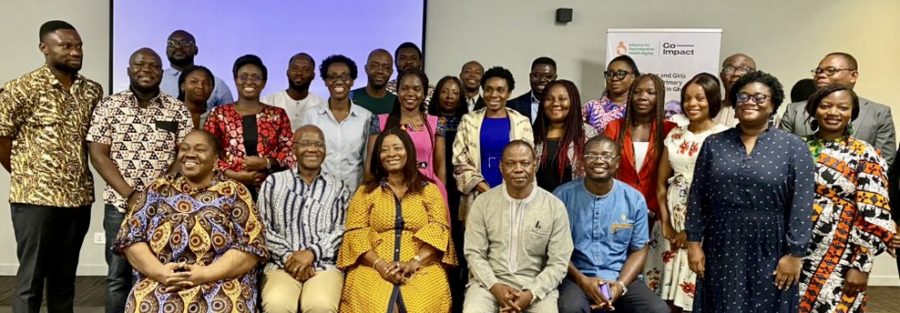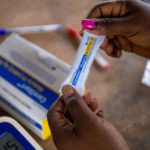ARHR organized a workshop to review emerging findings from studies conducted on gender, intersectionality, power, and political economy issues in Ghana’s Primary Health Care (PHC).
The meeting allowed stakeholders from civil society, academia, and other parties in the health sector to receive insights into the research findings and propose viable entry points for corrective action and systems change. It prioritized areas for further action at the community, local, and national levels to improve health outcomes for women and girls.
In recent years, there has been a growing recognition of the pivotal role that gender and intersectionality play in shaping health system outcomes. The World Health Organization (WHO) and numerous studies emphasize integrating gender and intersectional analysis into health systems research, policy development, and implementation. This approach helps to understand and address the differential needs and experiences among individuals, especially, those with multiple vulnerabilities.
The intersectional gender analysis in the PHC context enhances understanding of how patriarchal systems influence women and girls’ healthcare choices within households and communities and unpack how gender intersects with other social markers to marginalize women and girls — as these factors impact their agency and perceptions about their right and ability to demand accountability within the care environment.
The study was imperative as part of actions to implement a systems change initiative to improve health outcomes for women and girls through a strengthened PHC. The effectiveness and responsiveness of PHC systems for women and girls hinge on equitable resource allocation and leadership opportunities. This includes equitable distribution of power, influence, and access to decision-making and critical resources within the health system.
In her welcome remarks, the Executive Director of ARHR, Vicky T. Okine, mentioned that striving towards Universal Health Coverage by 2030 under the guiding principle of leaving no one behind required a rethink and redesign of our healthcare system to ensure greater inclusivity.
“Successfully attaining this ambitious UHC goal demands a deeper understanding of health disparities within the broader context of our healthcare system, including political, cultural, social, and economic factors,” she said.
In his remarks, the Director General of the Ghana Health Service, Dr. Patrick Kuma Aboagye, acknowledged Ghana’s progress in improving health outcomes. He also emphasized several critical systemic issues that must be addressed to sustain improved health outcomes for women and girls in Ghana.
He revealed that the Network of Practice and Model Centers have been launched to fortify the PHC system in Ghana which aims to act as a vehicle for pooling resources at the community level to deliver essential health services more effectively and sustainably- and as well as mitigate the opportunity costs faced by women and girls, making it easier for them to access care without sacrificing significant time and resources.
“By addressing these systemic challenges, the health service can move toward a more equitable and effective system that serves all segments of the population, particularly women and girls, more justly and efficiently”, he opined.
The Director General underscored the importance of ARHR’s research findings and noted that it will shed light on the critical issues affecting the health system, providing evidence to improve access to healthcare and protect the most vulnerable populations.
Close to 50 participants were in the meeting and critically analyzed Ghana’s PHC system and brainstormed sustainable solutions and measures to improve health outcomes. Key recommendations were to increase financing for PHC, ensure equitable distribution of health resources, and empower women and girls to participate in decision-making.



